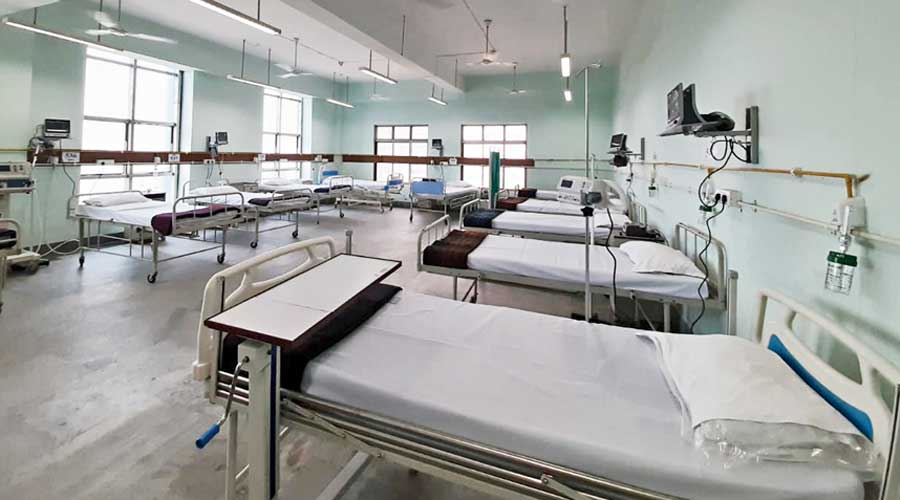Private hospitals cannot refuse to admit patients under the Swasthya Sathi scheme because of failure to recognise the cardholder’s fingerprint or if the patient party fails to produce the card during admission, the state clinical establishment commission said on Wednesday.
The West Bengal Clinical Establishment Regulatory Commission has received complaints against private hospitals for refusing to admit patients under the Swasthya Sathi scheme, said retired judge Ashim Banerjee, chairperson of the panel.
“If the fingerprint of a beneficiary does not match, the hospital should admit the patient and contact the Swasthya Sathi cell of the health department. We have requested the department to use other methods of verification and solve the problem quickly,” Banerjee said.
“Private hospitals have to start treatment under the Swasthya Sathi scheme from the moment the patient party produces the card to the hospital. There have been complaints that hospitals are not admitting patients under the Swasthya Sathi scheme and are charging the hospital rates. The hospitals defend themselves saying the patient party did not produce the Swasthya Sathi card at the time of admission.”
It was tough to decide who was right and who was wrong in such cases.
“To avoid such a situation we are asking private hospitals to admit a patient under the Swasthya Sathi scheme the moment the family shows the card. Whether the treatment done before production of the card can be included under the Swasthya Sathi scheme is a policy decision the government will take,” said Banerjee.
In cases where the card is produced after admission, the hospital should at least charge the rates mentioned in the scheme from the moment the card is produced.
The treatment done before the production of the card can be charged according to the hospital’s rates.
“If anyone feels he or she has been overcharged for the treatment done before the production of the card, the person can approach the commission,” said Banerjee.
An advisory issued by the state health department on Monday mentioned that there were 2.3 crore beneficiary families under the scheme. The card is issued in the name of the eldest female member of the family.
The scheme provides coverage of up to Rs 5 lakh per family per year.
